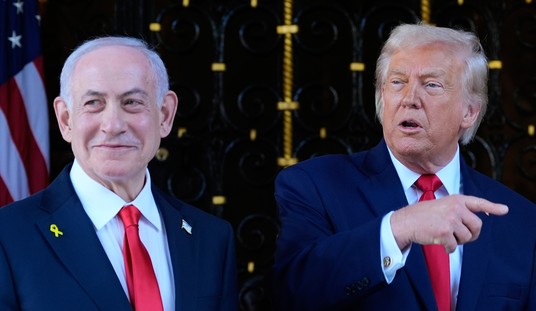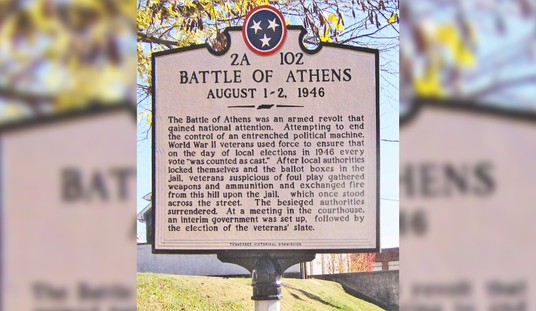Fresh off of impressive wins in the District of Columbia, Maryland, and Virginia, Illinois Senator Barack Obama seems poised to ride his campaign mantra of “change” to the Democratic presidential nomination, with a very real possibility of becoming America’s first black president. His rock star — excuse me, “Barack star” — hype aside, however, he is running a campaign on ideas and ideals firmly rooted in old-school, well-monied, liberal culture.
Obama’s political background is cryptic, and perhaps purposefully so. Recent attempts to find some substance in his legal and academic background have come up empty. His record of voting “present” while in the Illinois Senate instead of taking a position on tough issues is well-known. Democratic focus groups that wildly favor Obama over Hillary Clinton could not list a single legislative accomplishment for the senator, and instead admitted of Obama that “you don’t get the substance. You only get froth and apologies.”
To date, Obama’s masterful rhetorical skills have wooed voters across the political spectrum, but for those of us who grew up in the late 1980s and early 1990s, we may well be advised to start considering Obama as the “Milli Vanilli candidate.”
You remember Milli Vanilli, don’t you? Or are you still trying to forget?
Fab Morvan and Rob Pilatus were the faces of the duo that achieved considerable pop music success with such songs as “Baby Don’t Forget My Number,” “Girl I’m Gonna Miss You,” “Blame It on the Rain,” and “Girl You Know It’s True.” In 1990 they won the Grammy Award for Best New Artist.
Too bad these two models/dancers didn’t actually sing any of the songs on their album. They were a fraud, lip-syncing for the less attractive actual talent. Morvan, Pilatus, and Arista records were subsequently named the defendants in more than two dozen consumer fraud cases and stripped of their Grammy as a result.
Unlike Milli Vanilli’s Morvan and Pilatus, Barack Obama still has his Grammy. What he lacks are new ideas and substance that extends beyond his less-than-original campaign phrases.
Despite the uniting messianic figure that he plays on stage and in front of the cameras, Obama’s actual voting record has established him as the most radical leftist in the United States senate, to the left of Joe Biden, self-described socialist Bernie Sanders, and the epitome of nanny-state limousine liberalism, Ted Kennedy.
Far from being a centrist, Obama is a radical on hot-button issues.
Though he tries to talk about it as little as possible, Obama is a strong gun control advocate, and has stated his support of a ban on the manufacture, sale, and possession of handguns. His recent comments that he will not take guns away from hunters is purposefully duplicitous, glossing over the fact that he supports a permanent ban on semi-automatic firearms and standard capacity magazines, like those commonly used in hunting, target shooting, and for self-defense.
Obama’s economic policies? Says Larry Kudlow:
Obama voted against the Bush tax cuts on capital gains and dividends, justifying his anti-growth stance with the old class-warfare saw about tax cuts for the rich. Of course, these are the very same tax cuts that spurred economic expansion, created record job growth, and reduced the deficit as revenues flooded the Treasury.
The young senator also voted against repealing the death tax. He dismissed it as a “Paris Hilton tax break” that would give “billions of dollars to billionaire heirs and heiresses.” Try telling that to the owners of farms, ranches, and small businesses who are forced to sell their legacies because of this tax.
He swings a nice protectionist bat, too. He has voted against free trade (CAFTA) and U.S. energy independence (drilling in ANWR), and has opposed lifting a $0.54 per gallon tariff on Brazillian ethanol. “Ethanol imports are neither necessary nor a practical response to current gasoline prices,” he claimed. Nonsense.
He’s also strongly opposed to personal retirement accounts for Social Security reform, and prefers instead that the government stewards your money. As Amanda Carpenter wrote in Human Events, “When speaking out against various tax cuts, Obama has likened the ‘Ownership Society’ — which entails such things as personalized Social Security accounts, health savings accounts, and school choice — to ‘social Darwinism.'”
The George W. Bush way has been to work toward ending the multiple-taxation of savings and investment — to lower taxes and put the people’s money back in the people’s wallets. It’s all about capital. Simply put, the economy can’t grow without capital to fertilize the soil of new technologies, jobs, and businesses. But Obama scoffs at such notions.
Like almost everything else, Obama’s economic stance isn’t new — and it isn’t “change.”
For all the hype, Barack Obama is making his way though the Democratic nominating process by merely lip-syncing old liberal standards borrowed from those who came before him. When potential voters begin to notice the lack of originality behind the hype, the “change” candidate may find his fall to be just as meteoric as his rise.
Bob Owens blogs at Confederate Yankee.









Join the conversation as a VIP Member